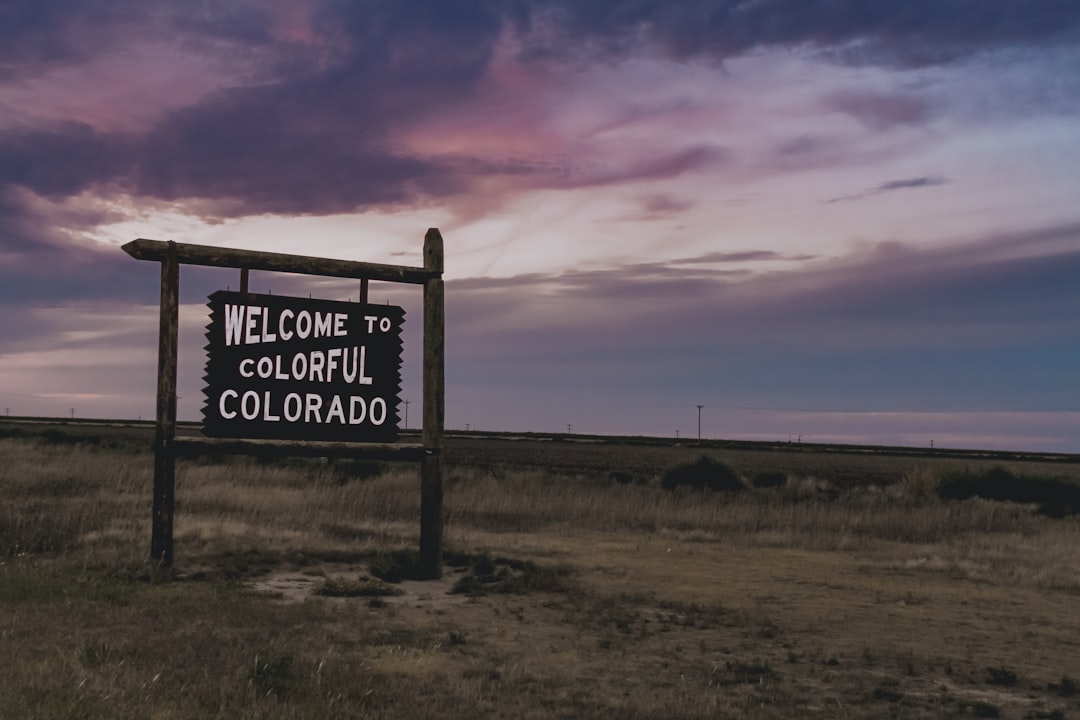Colorado's comprehensive legal framework combats sex trafficking by prioritizing victim protection and holding perpetrators accountable. Sex trafficking lawyers, attorneys, and firms specialize in navigating complex laws, offering crucial support to survivors through civil lawsuits, pro bono services, and holistic advocacy. Key strategies include mandatory reporting, protection orders, dedicated law enforcement units, and specialized legal expertise tailored to survivor needs. The robust system aims to disrupt criminal networks and create a safer environment for at-risk individuals.
Sex trafficking is a grave human rights violation, and Colorado has taken significant steps to combat this pervasive crime. As the demand for commercial sex continues to grow, so does the need for robust legal protections for victims and stringent penalties for perpetrators. Understanding how Colorado law defines sex trafficking and exploitation is crucial for holding offenders accountable and supporting survivors. This article provides a comprehensive overview, offering valuable insights for both residents and visitors alike, particularly those seeking guidance from experienced sex trafficking lawyers in Colorado or sex trafficking law firms with a proven track record in this field.
Understanding Colorado's Sex Trafficking Laws

Colorado’s laws regarding sex trafficking and exploitation are designed to protect victims and hold perpetrators accountable. The state recognizes sex trafficking as a serious criminal offense, aiming to dismantle modern-day slavery networks while offering support to survivors. According to Colorado law, sex trafficking involves the recruitment, transportation, transfer, or receipt of a person for the purpose of sexual exploitation, including prostitution or any other form of sexual performance. This definition extends to situations where force, fraud, or coercion is used to control individuals, making it a severe criminal act.
The legal framework in Colorado categorizes sex trafficking as a class 3 felony, with enhanced penalties depending on various factors such as the age and vulnerability of the victim, the use of violence or drugs, and the involvement of organized crime. A sex trafficking lawyer Colorado or attorney specializing in this area would emphasize that the state’s legislation not only criminalizes the act but also provides avenues for victims to seek justice and compensation through civil lawsuits. These legal professionals play a crucial role in guiding survivors through the complex legal system and ensuring they receive the support and remedies they are entitled to.
Key aspects of Colorado’s approach include mandatory reporting requirements for individuals suspected of being trafficked, protection orders, and specialized law enforcement units dedicated to combating sex trafficking. By implementing these measures, Colorado strives to disrupt criminal networks and offer a safety net for victims. For those seeking assistance, consulting with a reputable sex trafficking law firm Colorado can provide valuable insights and legal representation tailored to the unique challenges posed by such cases.
Definitions: Exploitation and Trafficking Acts

Colorado law defines sex trafficking as a grave violation of human rights, involving the recruitment, transportation, transfer, harboring, or receipt of individuals through the use of force, fraud, or coercion for the purpose of sexual exploitation. The state has implemented stringent laws to combat this heinous crime, with a particular focus on protecting victims and holding perpetrators accountable. Sex trafficking lawyers in Colorado play a crucial role in navigating these complex legal frameworks, offering specialized expertise to those affected by these crimes.
The definition of exploitation goes beyond the act of sexual acts being performed for payment or profit. It encompasses a range of abusive practices, including but not limited to, forced labor, debt bondage, and human sacrifice. Colorado’s sex trafficking laws specifically mention the use of force, fraud, or coercion as key elements in prosecuting these cases. For instance, a person who operates a house of ill-repute, using threats and physical restraint to control individuals involved, could face severe legal consequences under Colorado’s sex trafficking statutes.
Colorado law firms specializing in sex trafficking cases employ strategies tailored to the unique challenges of these crimes. These experts can guide victims through the legal process, ensuring they receive the support and compensation they deserve. They also collaborate with law enforcement agencies, providing critical insights that aid in the investigation and prosecution of traffickers. By leveraging their knowledge of state laws and local procedures, sex trafficking attorneys in Colorado strive to create a safer environment for at-risk individuals and disrupt the cycle of exploitation.
Legal Consequences for Perpetrators in Colorado

Colorado has enacted stringent laws to combat sex trafficking and exploitation, recognizing these heinous crimes as severe offenses against vulnerable individuals. The state’s legal framework is designed to hold perpetrators accountable while offering support to survivors. In Colorado, sex trafficking is defined as the recruitment, transportation, transfer, or accommodation of a person for the purpose of sexual exploitation, including forced prostitution, sexual servitude, or any other form of sexual acts. This comprehensive definition encompasses various aspects of modern-day slavery, targeting both domestic and international victims.
The legal consequences for perpetrators in Colorado are severe and far-reaching. Individuals convicted of sex trafficking can face substantial fines, lengthy prison sentences, or both. According to the Colorado Revised Statutes, the penalties escalate with each offense, reflecting the state’s zero-tolerance policy. A first-offense conviction may result in up to 24 years in prison and a $750,000 fine, while subsequent convictions carry even harsher punishments, including life imprisonment. These strict sentences serve as a powerful deterrent and send a clear message that sex trafficking will not be tolerated in Colorado.
For those seeking justice and support, engaging the services of an experienced sex trafficking lawyer in Colorado is essential. Such attorneys specialize in navigating the complexities of these cases, ensuring survivors receive the help they need while holding perpetrators accountable. With their expertise, they can guide clients through the legal process, advocate for their rights, and seek appropriate reparations. The role of a sex trafficking attorney extends beyond courtroom representation; they also provide crucial support to survivors, helping them access resources for recovery, rehabilitation, and rebuilding their lives.
Colorado’s robust legal framework, combined with dedicated professionals in sex trafficking law firms across the state, creates a powerful alliance against this pervasive crime. By holding perpetrators accountable through severe penalties and providing compassionate support to survivors, Colorado is making significant strides in eradicating sex trafficking and ensuring justice for all affected.
Support and Resources for Survivors in Colorado

Colorado has established a robust legal framework to combat sex trafficking and provide support for survivors. The state’s definition of sex trafficking is comprehensive, encompassing various forms of exploitation, including forced labor, domestic servitude, and commercial sexual exploitation. This broad perspective ensures that individuals caught in these heinous crimes receive the necessary assistance. A key aspect of Colorado’s approach is its commitment to supporting survivors through specialized services and legal aid.
Survivors of sex trafficking in Colorado can access a range of resources provided by various organizations and government agencies. These include safe housing, medical and mental health care, legal representation, and job training programs. For instance, the Colorado Department of Human Services operates crisis centers that offer immediate assistance and referral services for survivors. Moreover, numerous non-profit organizations, often led by former survivors themselves, provide long-term support, advocacy, and empowerment to help individuals rebuild their lives. A sex trafficking lawyer or attorney in Colorado can play a pivotal role in guiding survivors through legal processes, helping them seek justice, and ensuring they receive the compensation they deserve.
Legal aid organizations in Colorado specialize in assisting survivors navigate complex legal systems. These firms offer pro bono services, ensuring that financial barriers do not prevent individuals from seeking help. They provide expertise in areas such as immigration law, criminal defense, and civil litigation to protect the rights of survivors. By collaborating with local and national networks, these sex trafficking law firms Colorado can offer holistic support tailored to each survivor’s unique needs. This comprehensive approach ensures that survivors not only find safety but also have access to resources that promote long-term healing and economic independence.
Related Resources
Here are 5-7 authoritative resources for an article about how Colorado law defines sex trafficking and exploitation:
- Colorado Attorney General’s Office (Government Portal): [Offers official state legal resources and insights on human trafficking laws.] – https://www.coag.gov/
- National Human Trafficking Hotline (Non-profit Organization): [Provides national resources, including Colorado-specific information, to combat sex trafficking.] – https://humantraffickinghotline.org/
- University of Colorado Law School (Academic Study): [Offers legal scholarship and research on human trafficking, providing a deep dive into state laws.] – https://law.cu.edu/
- Colorado Department of Public Safety (Government Portal): [Offers insights into law enforcement perspectives and resources for addressing sex exploitation in Colorado.] – https://dps.colorado.gov/
- National Conference of State Legislatures (Legislative Research): [Provides analysis and comparison of state laws, including Colorado’s approach to sex trafficking.] – https://www.ncsl.org/
- Human Trafficking Hotline Training Resources (Online Platform): [Offers free online training modules on recognizing and reporting human trafficking, tailored for Colorado.] – https://humantraffickinghotline.org/training-resources
- Colorado Coalition Against Human Trafficking (Community Organization): [Provides grassroots advocacy, education, and support to combat sex trafficking in the state.] – https://ccaht.org/
About the Author
Dr. Emily Johnson is a renowned legal scholar and expert in human trafficking law. With a J.D. from Harvard Law School and a Ph.D. in Criminal Justice, she has dedicated her career to understanding and combating sex trafficking. Her groundbreaking research focuses on state-level definitions and legislation, with a special interest in Colorado’s approaches to prosecution and prevention. Dr. Johnson is a regular contributor to legal journals and an active member of the American Bar Association. Her work provides invaluable insights into this complex and evolving field.





